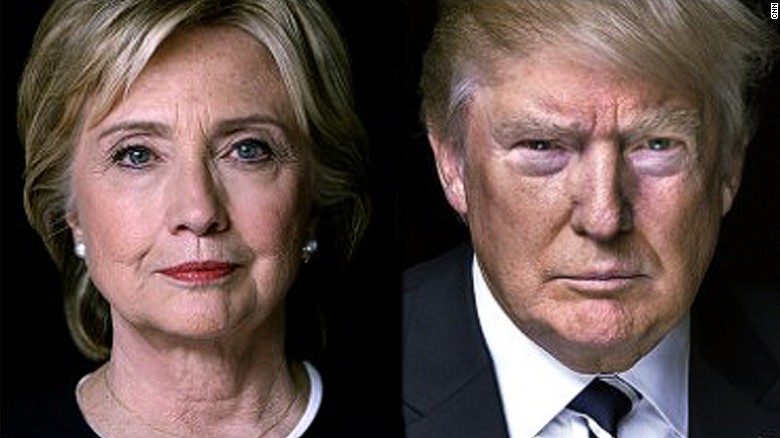
As a tense, divided country barrels toward Election Day, Americans say they are worried about the possibility of violence flaring up after the country votes for a new president next month.
Half of likely voters say they are at least somewhat concerned about violence either on Election Day or after, according to a USA Today/Suffolk University poll conducted this month. One in five likely voters say they are very concerned, about the same number who said they were not terribly confident that the United States would “have a peaceful transfer of power after the election.”
The poll’s results come as Donald Trump, the Republican presidential nominee, has repeatedly assailed the integrity of the country’s election systems, remarks he made while facing a drop in the polls (which he also says are rigged against him). Trump’s unsubstantiated comments – along with his calls for supporters to go “to certain areas” and watch for suspicious activity – have prompted alarm among government officials and elected leaders, who are preparing for the possibility of unrest and violence on Election Day.
According to the USA Today/Suffolk poll, which found Trump trailing Democrat Hillary Clinton by nine points, two out of three Trump supporters said they thought the election’s results would be manipulated rather than be accurate. Trump supporters were also more likely to say that if he lost, it would be due to corruption and therefore the outcome would not be legitimate.
As authorities warily get ready for the bitter campaign to give way to (most) voters casting ballots, some election officials have been raising concerns about the presence of guns in polling places amid such fraught emotions. Election officers in Virginia say they are worried about conflicts at voting locations due to Trump’s comments, and some had considered one-day bans on weapons on private property, though a state lawmaker pushed back against that.
Cameron Sasnett, the registrar for Fairfax County, Virginia, told The Post that while the issue of possible violence was “on the radar” of his office, “we have full faith and trust that [gun owners] will control those weapons in a manner that is consistent with state law.”
In Colorado, a state that has seen some of the country’s deadliest mass shootings, election officials say they are training poll workers how to respond to such violence if it erupts that day. Pennsylvania has noted that voters legally allowed to carry guns cannot be stopped from bringing them into polling places, though they say local officials should contact the police if someone appears to be trying to intimidate other voters.
Some schools with polling locations have also decided to cancel classes, and a few of these have said they did so to protect the safety of their students. Earlier this year, authorities in Fairfax County opted to keep students home during the presidential primary in Virginia, in part because officials said they were worried about Trump voters being angry over a state GOP pledge that was later dropped. Corey Stewart, the Trump campaign’s former state co-chairman, called that suggestion a “ridiculous” effort to “impugn the reputation of Trump supporters and of Trump himself.”
With the election less than two weeks away, there is also other uncertainty surrounding the voting process – including how, exactly, many people will be able to vote. A number of battleground states are still fighting over voting laws, and questions remain about whether voters have been adequately informed about the changing and complex rules they may have to follow to cast their ballots.
(c) 2016, The Washington Post · Mark Berman

